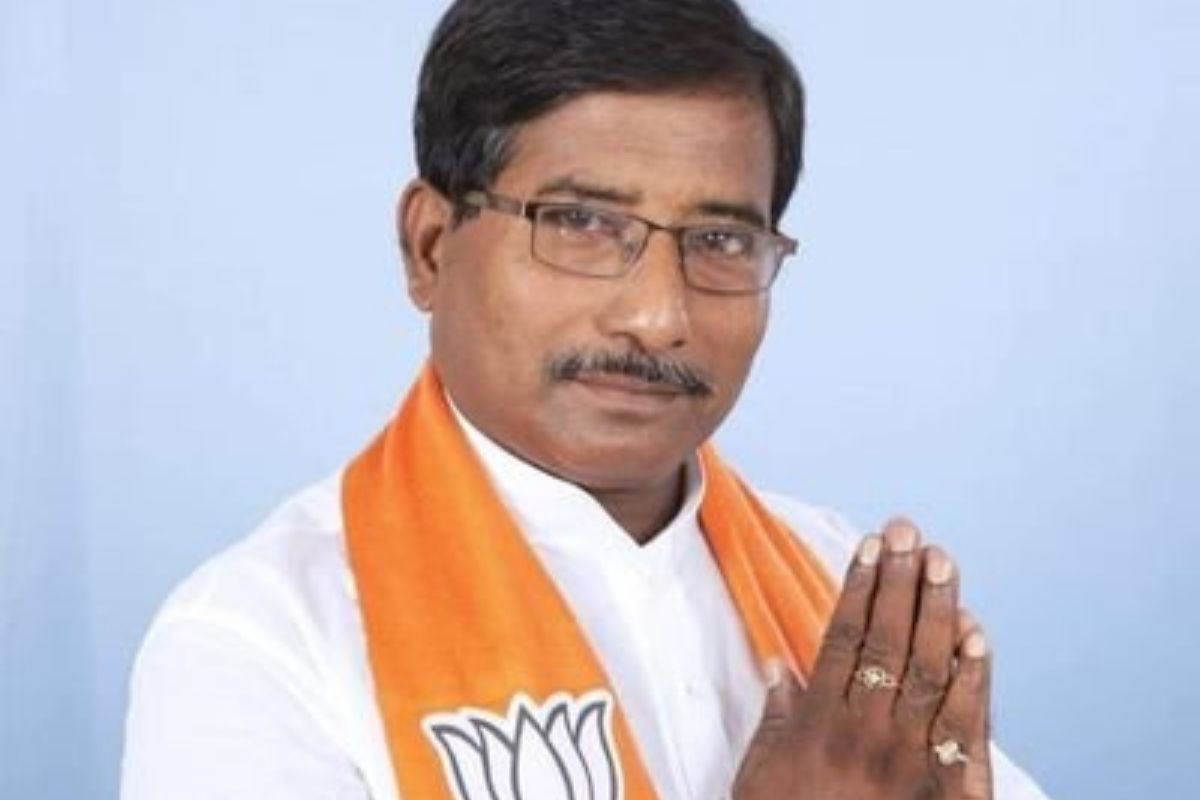Karnataka: DK Shivakumar reaffirms his loyalty to Congress
Karnataka Deputy Chief Minister and KPCC President DK Shivakumar has strongly denied speculation about his alleged proximity to the BJP, calling it “propaganda.”
In a closely watched contest, the Bharatiya Janata Party (BJP) candidate Jagannath Sarkar has emerged victorious in the Ranaghat parliamentary constituency, but with a diminished margin, reflecting a nuanced shift in the political sentiments of the Matua community.

BJP MP Jagannath Sarkar
In a closely watched contest, the Bharatiya Janata Party (BJP) candidate Jagannath Sarkar has emerged victorious in the Ranaghat parliamentary constituency, but with a diminished margin, reflecting a nuanced shift in the political sentiments of the Matua community. Despite securing 7,82,396 votes (50.8%) against Trinamul Congress (TMC) candidate Mukut Mani Adhikari’s 5,95,497 votes (38.7%), Mr Sarkar’s vote share has seen a decline of nearly 2.3% compared to his previous term.
In the 2019 Lok Sabha election, Mr Sarkar had garnered 783,253 votes (52.8%), defeating TMC’s Rupali Biswas who received 549,825 votes (37%). This year’s reduced victory margin of 1,86,899 votes, compared to the previous term, indicates a significant shift in the Matua community’s voting patterns, despite the BJP’s implementation of the Citizenship Amendment Act (CAA) – a long-standing demand of the community.
Advertisement
The Matuas, who form the second-largest Scheduled Caste group in West Bengal, constituting 3.8% of the total population, have consistently advocated for the rehabilitation of Hindu Bengali refugees from Bangladesh. In 2019, the BJP had capitalized on this demand, securing victories in Matua-dominated constituencies such as Ranaghat and Bangaon. However, the recent panchayat elections signalled resurgence for TMC, which won 49 out of 53 panchayats in these areas, while the BJP managed to secure only one.
Advertisement
Despite these setbacks, the BJP aimed to reconsolidate Matua support by celebrating the CAA’s introduction. In the Matua-dominated regions of Nadia and North 24-Parganas, BJP workers organized celebratory events. Shantanu Thakur, junior Union minister and head of All India Matua Mahasangha, marked the occasion by presenting sweets at the state BJP office in Kolkata, hailing the CAA as a “historic event.”
“History has been created today. A century from now, the government may change, but no one will ever question the citizenship of refugees. This is a response to Mamata Banerjee, who spread misinformation and created unnecessary panic about the CAA jeopardizing individuals’ right to stay in India,” Thakur declared.
In recent years, the BJP has strategically positioned itself as a champion of lower-caste Hindu interests, gaining substantial influence within West Bengal’s Rajbanshi and Namashudra communities, which together make up 18.35% and 17.41% of the state’s Scheduled Caste population, respectively.
This election cycle, TMC fielded Mukut Mani Adhikari, a former BJP legislator and a member of the Matua community, in a bid to sway Matua voters. The election results indicate that a notable portion of the Matua electorate cast their votes in favour of the TMC, signifying a wavering confidence in the BJP’s commitments.
As the political landscape in West Bengal continues to evolve, the Matua community’s partial trust in the BJP and the fluctuating support in their traditional strongholds present a challenging scenario for both major parties. The upcoming elections will undoubtedly test the resilience and adaptability of the BJP’s strategies and TMC’s countermeasures in securing the pivotal Matua vote.
Advertisement